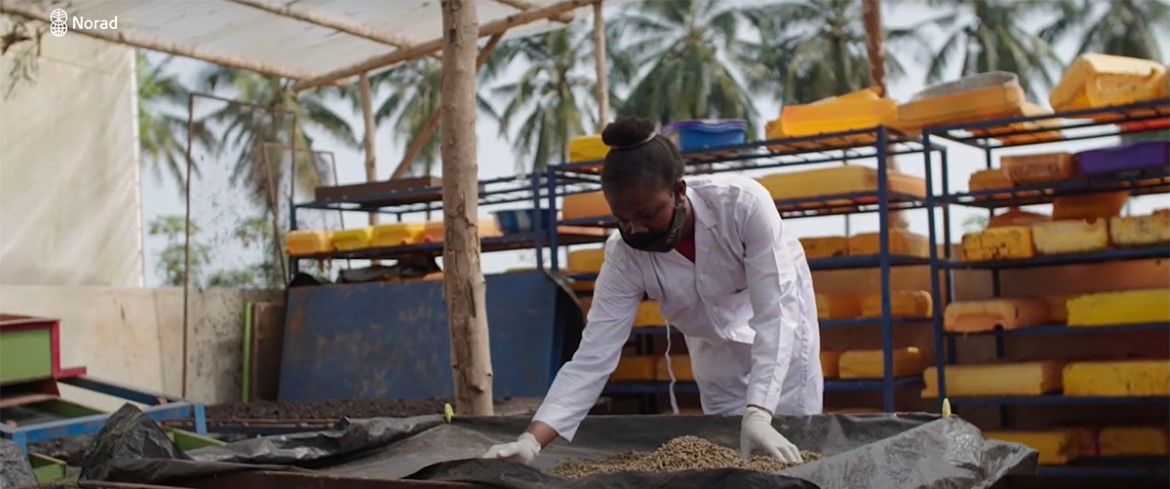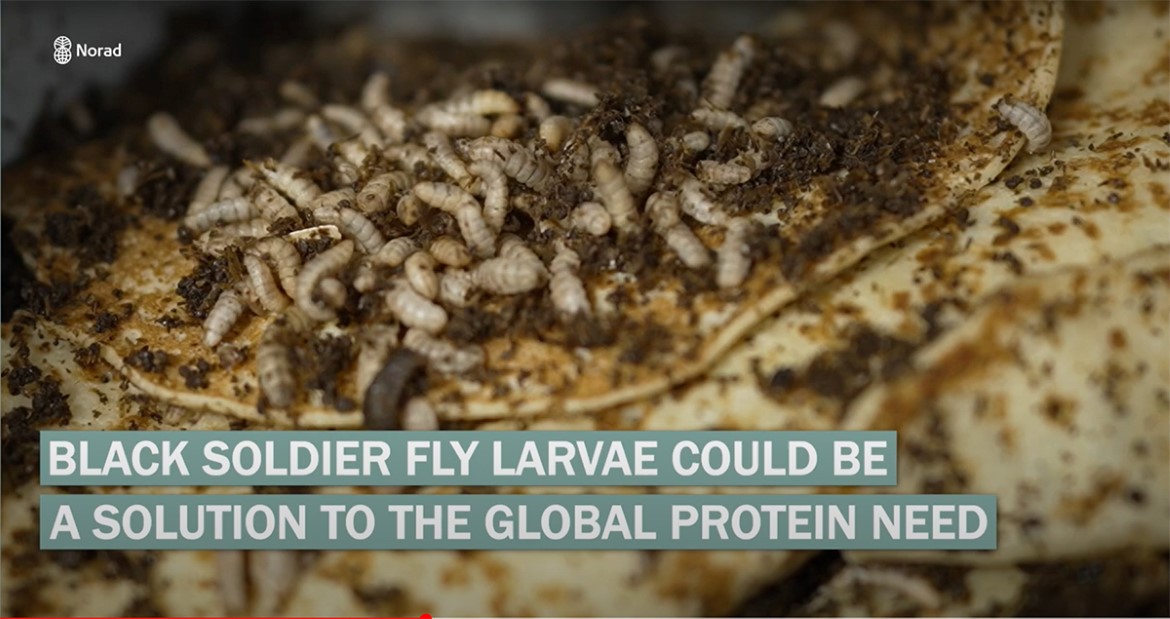
Black Soldier Fly addresses biowaste and mitigates climate change
“Norad believes this project can contribute to revolutionise the way we produce food on our planet”, says Norad’s May-Guri Sæthre at the project launch in Accra.
The three-year research for development project will turn vegetable, fruit, and slaughterhouse waste into chicken- and fish feed and organic fertilizer using the Black Soldier Fly larvae. The project will have many benefits: Economic benefits, clean environment, job creation and empowerment of youths and women.
The program has strong national support from the national systems in each target country; CSIR-IIR in Ghana, IER in Mali, and INRAN in Niger. The project consortium also includes two Norwegian partners: The Norwegian Institute of Bioeconomy Research and The Norwegian Institute of Marine Research.
Alternative feed sources
Chicken and fish farming are among the most rapidly expanding private sectors in African agriculture, and the industry is currently based on the traditional animal feed sources, namely soybean-, wild fish- and maize-meal.
“The rapid growth of this private sector, also globally, demands increased efforts to find alternative feed sources, competitive in price and quality, without occupying additional agricultural land”, says May-Guri Sæthre.
In West Africa, a large amount of biowaste is generated in urban markets, particularly in fruit and vegetable markets. By-products produced by slaughterhouses after slaughtering animals, such as blood, intestines, feathers, are often underutilized and generate additional waste sources.
Dealing with waste disposal
Municipalities governing waste disposal struggle to deal with the urban cities’ current waste levels in a sustainable way. As a result, biowastes accumulate in open and unregulated sites, creating unsanitary environmental conditions that pose public health risks and contribute to greenhouse gas (GHG) emissions.
“It is wonderful that an insect can be part of the solution! We depend on insects to pollinate our crops, and we will soon depend on them to feed the global population and protect our planet”, the Norad senior adviser emphasized at the launch of the project in Accra.
“Norad sees this project as realistic and cost effective, but also challenging”, Sæthre adds.
Research, policies, and regulations
The project will need to deliver, not only on the business models and capacity building, but also on policies and regulations for use of insect proteins that are suitable for each country – as well as producing research results across all three countries that are part of the project.
“Norad is confident that the need for alternative protein sources for animal feed will be an incentive for active participation and ensuring success at the national levels”, says May-Guri Sæthre.
She strongly believes that the project can make important contributions to the development and demonstration of sustainable and profitable production of animal and fish feed and fertilizer, based on the Black Soldier Fly and organic waste, while simultaneously addressing the many sanitary problems related to Municipal Solid Waste and contribute to reduce MSW related Green House Gas emissions.
The project is based on the principles of circular bioeconomy (CBE), an area Norad would like to contribute to develop further in Africa and elsewhere. It also contributes to several Sustainable Development Goals, including goal 1, 2, 6, 8, 9, 11, 12 and 13.

